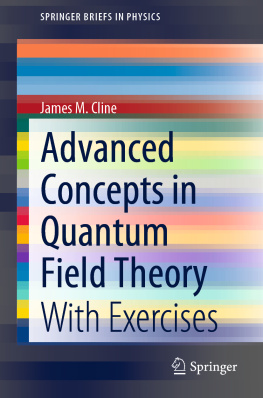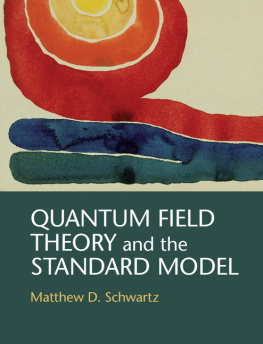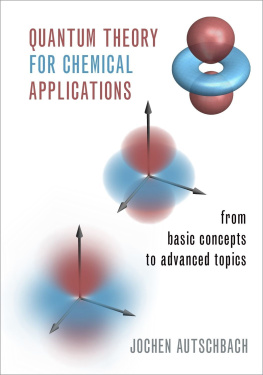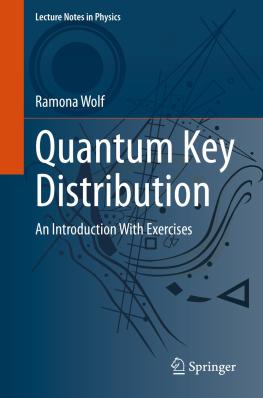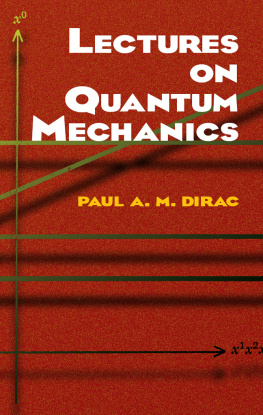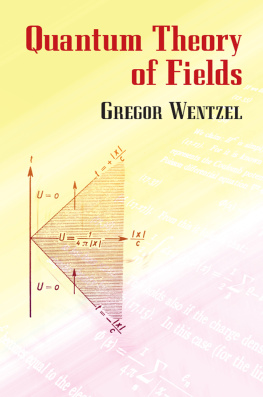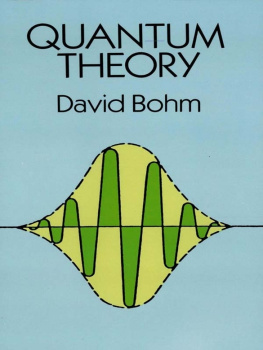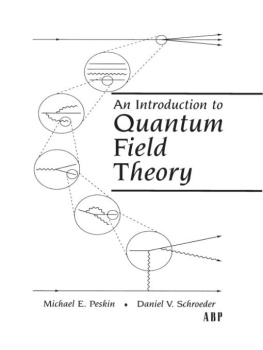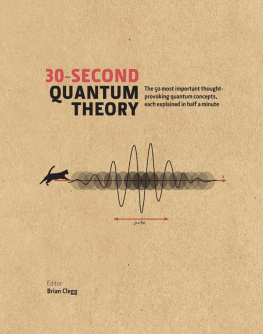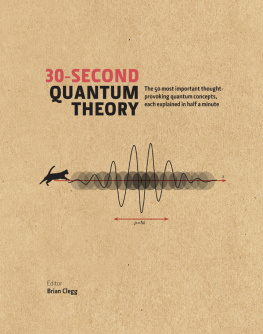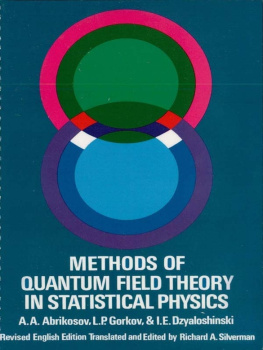James M. Cline - Advanced Concepts in Quantum Field Theory With Exercises
Here you can read online James M. Cline - Advanced Concepts in Quantum Field Theory With Exercises full text of the book (entire story) in english for free. Download pdf and epub, get meaning, cover and reviews about this ebook. City: Cham, Switerland, year: 2020, publisher: Springer Nature Switzerland AG, genre: Children. Description of the work, (preface) as well as reviews are available. Best literature library LitArk.com created for fans of good reading and offers a wide selection of genres:
Romance novel
Science fiction
Adventure
Detective
Science
History
Home and family
Prose
Art
Politics
Computer
Non-fiction
Religion
Business
Children
Humor
Choose a favorite category and find really read worthwhile books. Enjoy immersion in the world of imagination, feel the emotions of the characters or learn something new for yourself, make an fascinating discovery.
- Book:Advanced Concepts in Quantum Field Theory With Exercises
- Author:
- Publisher:Springer Nature Switzerland AG
- Genre:
- Year:2020
- City:Cham, Switerland
- Rating:3 / 5
- Favourites:Add to favourites
- Your mark:
- 60
- 1
- 2
- 3
- 4
- 5
Advanced Concepts in Quantum Field Theory With Exercises: summary, description and annotation
We offer to read an annotation, description, summary or preface (depends on what the author of the book "Advanced Concepts in Quantum Field Theory With Exercises" wrote himself). If you haven't found the necessary information about the book — write in the comments, we will try to find it.
Advanced Concepts in Quantum Field Theory With Exercises — read online for free the complete book (whole text) full work
Below is the text of the book, divided by pages. System saving the place of the last page read, allows you to conveniently read the book "Advanced Concepts in Quantum Field Theory With Exercises" online for free, without having to search again every time where you left off. Put a bookmark, and you can go to the page where you finished reading at any time.
Font size:
Interval:
Bookmark:
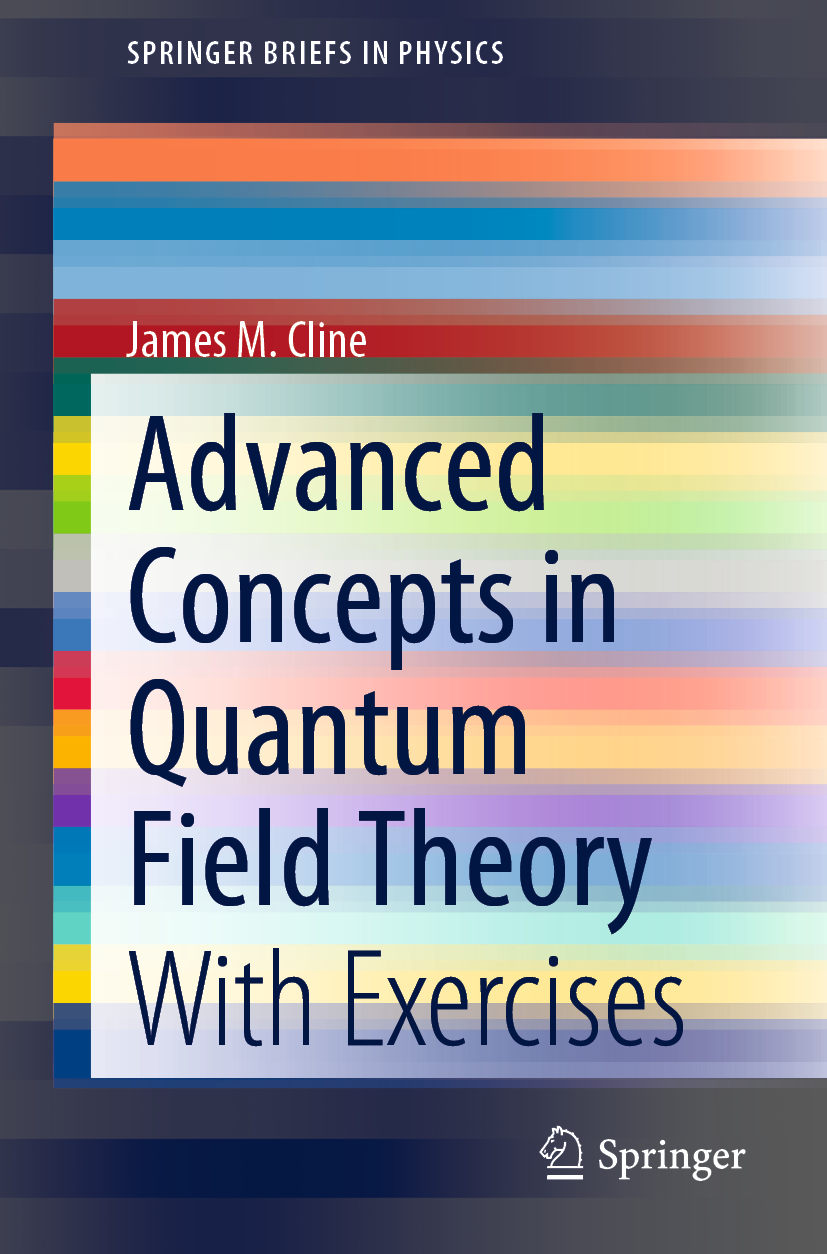
SpringerBriefs in Physics are a series of slim high-quality publications encompassing the entire spectrum of physics. Manuscripts for SpringerBriefs in Physics will be evaluated by Springer and by members of the Editorial Board. Proposals and other communication should be sent to your Publishing Editors at Springer.
Featuring compact volumes of 50 to 125 pages (approximately 20,00045,000 words), Briefs are shorter than a conventional book but longer than a journal article. Thus, Briefs serve as timely, concise tools for students, researchers, and professionals. Typical texts for publication might include:
A snapshot review of the current state of a hot or emerging field
A concise introduction to core concepts that students must understand in order to make independent contributions
An extended research report giving more details and discussion than is possible in a conventional journal article
A manual describing underlying principles and best practices for an experimental technique
An essay exploring new ideas within physics, related philosophical issues, or broader topics such as science and society
A snapshot review of the current state of a hot or emerging field
A concise introduction to core concepts that students must understand in order to make independent contributions
An extended research report giving more details and discussion than is possible in a conventional journal article
A manual describing underlying principles and best practices for an experimental technique
An essay exploring new ideas within physics, related philosophical issues, or broader topics such as science and society
Briefs allow authors to present their ideas and readers to absorb them with minimal time investment. Briefs will be published as part of Springers eBook collection, with millions of users worldwide. In addition, they will be available, just like other books, for individual print and electronic purchase. Briefs are characterized by fast, global electronic dissemination, straightforward publishing agreements, easy-to-use manuscript preparation and formatting guidelines, and expedited production schedules. We aim for publication 812 weeks after acceptance.
More information about this series at http://www.springer.com/series/8902

This Springer imprint is published by the registered company Springer Nature Switzerland AG
The registered company address is: Gewerbestrasse 11, 6330 Cham, Switzerland
Quantum Field Theory (QFT) is the language in which Natures Laws at their most fundamental level are written, and this makes it as important a subject for a scientist to learn as is the learning of English for a student of Shakespeare or French to a student of Voltaire. This is why many good QFT texts have been written to help novices find their way around what is a vast and rich subject.
But real fluency is required to appreciate masterpieces written in any language, and it is equally true that a full appreciation of Natures Laws requires going beyond an introductory treatment of QFT methods. Indeed, there is so much accumulated wisdom about QFT that learning it is a lifelong task that never really ends.
That is where this book comes in. This book is based on graduate lectures given at McGill University by the author, who is a world expert in the subject. It goes beyond the usual introductory topics found in many textbooks and dives deeper into important grottos of knowledgesuch as the nitty-gritty of renormalization and a discussion of non-perturbative issues like tunnelling and theta vacua in nonabelian gauge theories. These topics have both practical and conceptual value and are often not discussed in introductory textbooks.
Font size:
Interval:
Bookmark:
Similar books «Advanced Concepts in Quantum Field Theory With Exercises»
Look at similar books to Advanced Concepts in Quantum Field Theory With Exercises. We have selected literature similar in name and meaning in the hope of providing readers with more options to find new, interesting, not yet read works.
Discussion, reviews of the book Advanced Concepts in Quantum Field Theory With Exercises and just readers' own opinions. Leave your comments, write what you think about the work, its meaning or the main characters. Specify what exactly you liked and what you didn't like, and why you think so.

